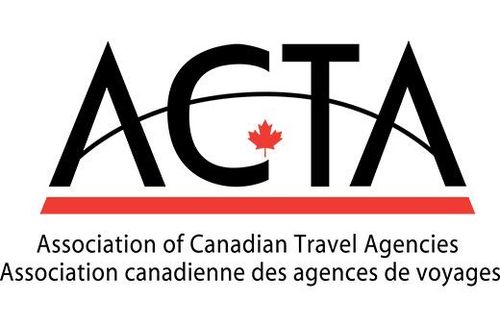Where travel agents earn, learn and save!
News / “Future contributions must be suspended”: ACTA, CATO renew calls to reform Ontario’s Comp Fund in light of pandemic
Ontario’s Compensation Fund serves as a much-needed safety net for consumers

June 4 - In a year that saw the global grounding of planes, the closure of international borders and a halt on tours and cruises around the world, there’s no question that the COVID-19 pandemic has devastated the travel & tourism sector, across the chain, at all levels. Here in Canada, with little-to-no bookings coming in, over 800 store-front travel agency locations have been forced to close from March 2020 to March 2021, while members of CATO (Canadian Association of Tour Operators) and other tour operators are faced with year-over-year revenue drops of more than 90%, says CATO Chair Brett Walker.
With many travel and tourism businesses being forced to shutter their doors, concerns over consumer protection are at an all-time high as travellers scramble to get refunds for cancelled flights, cruises and tours. In the case of Ontario retailers that were unable to provide travel services due to bankruptcy or insolvency, Ontario’s Compensation Fund, put in place to cover such an event, serves as a much-needed safety net for consumers.
But with an increase in business closures, is the Fund enough to cover claims during travel’s worst-ever crisis?
According to Richard Smart, President and CEO of TICO, which administers the Compensation Fund, claims for the past fiscal year have been relatively low and that the process related to consumer claims against the Fund hasn’t changed since the start of the pandemic. As of March 2020, the Fund sat at $23.5 million and “there have been no material changes to the Fund since that time.” TICO will reveal current financials at its upcoming AGM, scheduled for June 29.
Ontario’s Compensation Fund has been a point of contention in the travel industry for years, particularly among Ontario’s registered travel agents and wholesalers who’ve been tasked with the responsibility of financing it. As per the current funding model, registrants are paying $0.25 per $1,000 gross sales, with Fund payouts limited to a maximum of $5,000 per claimant – often not enough to cover the cost of a single trip – and a maximum of $5 million (plus $2 million per repatriation) per event.
In contrast, Quebec’s Compensation Fund for Customers of Travel Agents, which is based on a consumer-pay model (consumers pay roughly $1 per $1,000), sits at a very healthy $150 million, so healthy in fact that the OPC (Office de la protection du consommateur), the governing body that oversees the Fund, stopped taking contributions a few years ago.
But, even $150 million isn’t enough to cover the cost of a pandemic, says ACTA president Wendy Paradis.
“There are over 35,000 claims totalling over $100 million. With a maximum payout of claims at 60%, the $150 million Fund would have also resulted in ‘cents on the dollar’ for a consumer claim,” she says. “The difference, however, is that the Quebec Fund would quickly begin to replenish as the nominal fee charged to the consumer per booking is reinstated.”
For this reason, Paradis is lobbying for a consumer-funded model like Quebec’s and believes that industry contributions should be eliminated.
“Travel consumers are the beneficiary of the Fund and should therefore pay into it,” she adds. “Cancelling the industry contributions will signal that Ontario is open for business, it will grow the economy and will reduce red tape, leading to the creation and protection of good jobs across the province. Failure to act will continue to put Ontario travel companies at a disadvantage and will jeopardize jobs in an extremely competitive industry with very tight margins.
“The Government of Ontario should take this time to make the necessary changes, which would provide travel agencies with much needed breathing room to get back on their feet. Future Fund contributions must be suspended to support the recovery of Ontario travel businesses.”
To its credit, TICO – following new funding from the Ontario Government – has waived annual registration renewal fees and Compensation Fund payments for registrants, but only until March 31, 2022. Payments during this period will not have to be repaid at a later date.
But with no contributions coming in from registrants for an entire year, this begs the question: is the Fund now at risk of being too small to cover the calamities of an ongoing pandemic? According to TICO’s Actuarial Review of the Compensation Fund, conducted by Deloitte in October 2018, the Fund should have a target value of $40 million to $60 million, far more than the $23.5 million it had at last count. Plus, as of March 31, 2020, the number of TICO registrants was 2,096, an 11% drop from the year before. Once payments resume in 2022, there will be less registrants paying into the Fund.
“The Ontario travel industry is tethered to a sinking ship”
Although the fee and payment waiver will certainly help registrants during an incredibly difficult time, they will, however, be expected to resume payments next March, just when they’re getting back on their feet. To this, CATO’s Walker says: “While I appreciate TICO has referred to the suspension of fees as a deferral, it is the expectation of all our members that any future fees will be on a going-forward basis.”
Walker adds that CATO members are earning “zero revenue right now,” and with no roadmap to reopening it will be this way well into the future.
“Considering the advance purchase timelines of most members are six months or more, our members will not begin to realize any revenue until sometime in 2022,” he says.
As Chair of CATO, Walker has been vocal about his support for a consumer-pay model for Ontario’s Compensation Fund, especially following the failures of Thomas Cook in 2019 and Monarch Airlines in 2017. In his presentation to the Special Committee of Judicial Policy on May 20, 2020, the main points of which he says still apply a year later, Walker stressed the need to break the status quo.
“CATO believes that the Ontario travel industry is tethered to a sinking ship. The hole in the ship, if you will, is a completely inadequate consumer protection fund in Ontario,” he said. “Administrative penalties and other changes to governance are well intended but, like bailing water from a sinking ship, do not fix the hole.
“Fixing the hole will require a significantly more robust consumer protection fund. Achieving this requires a different funding model.”
Source: Travelweek
More Travel News:
A4A, NACC urge Roadmap for restart of transborder air travel
North American airlines push for restart of Canada – US transborder aviation market
European Travel and Tourism sector launches “Destination Summer” campaign
WTTC research reveals Travel & Tourism sector’s contribution to Canada’s GDP dropped by more than $59 billion in 2020











